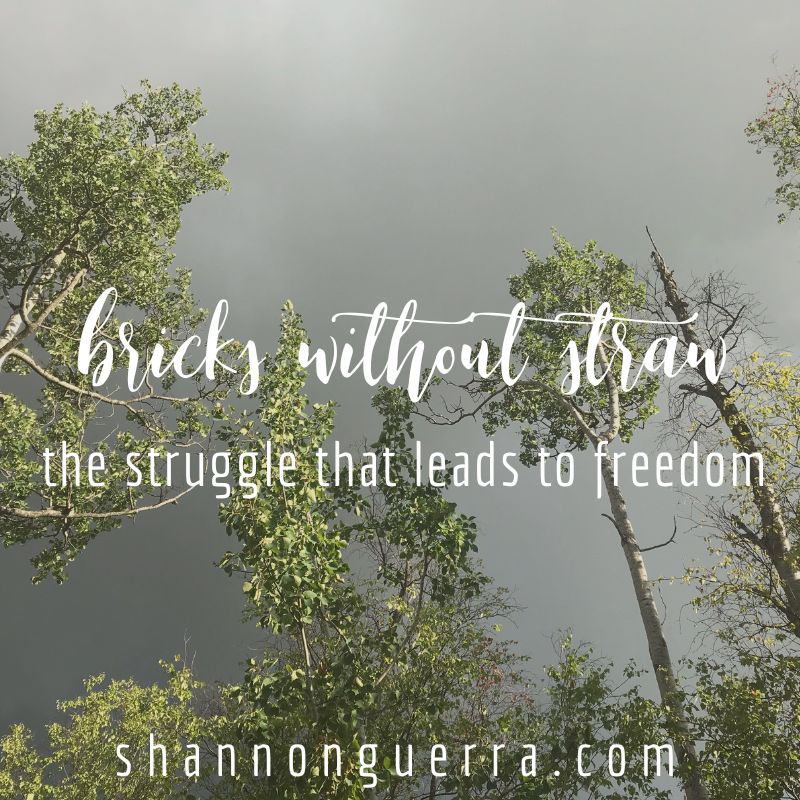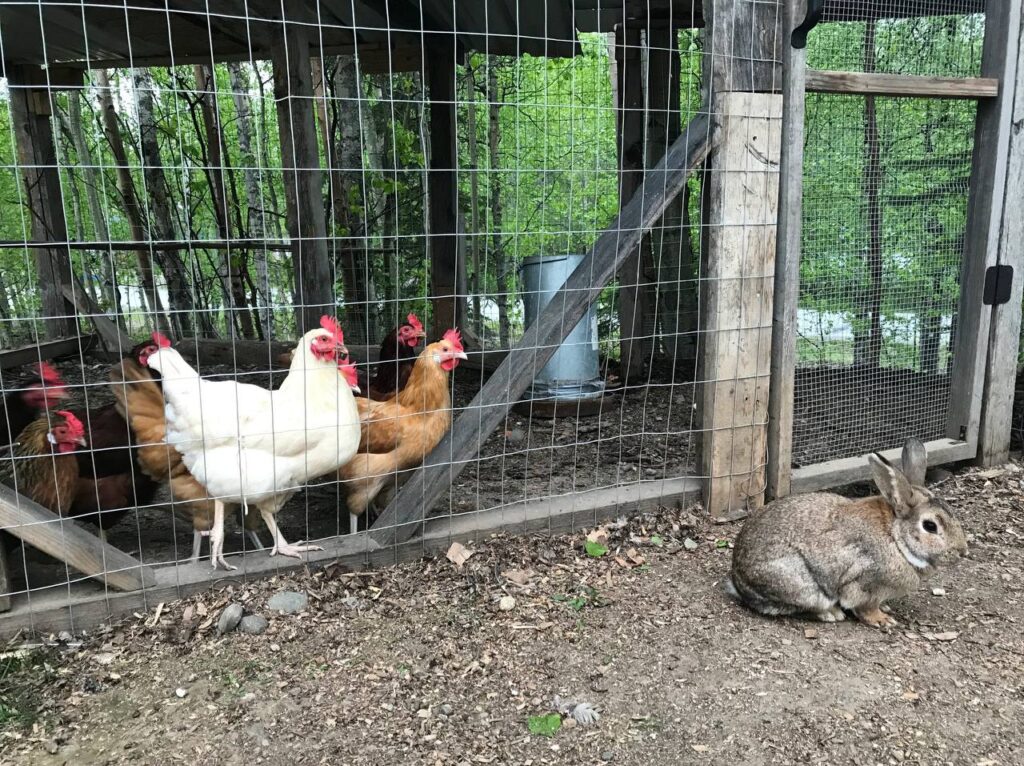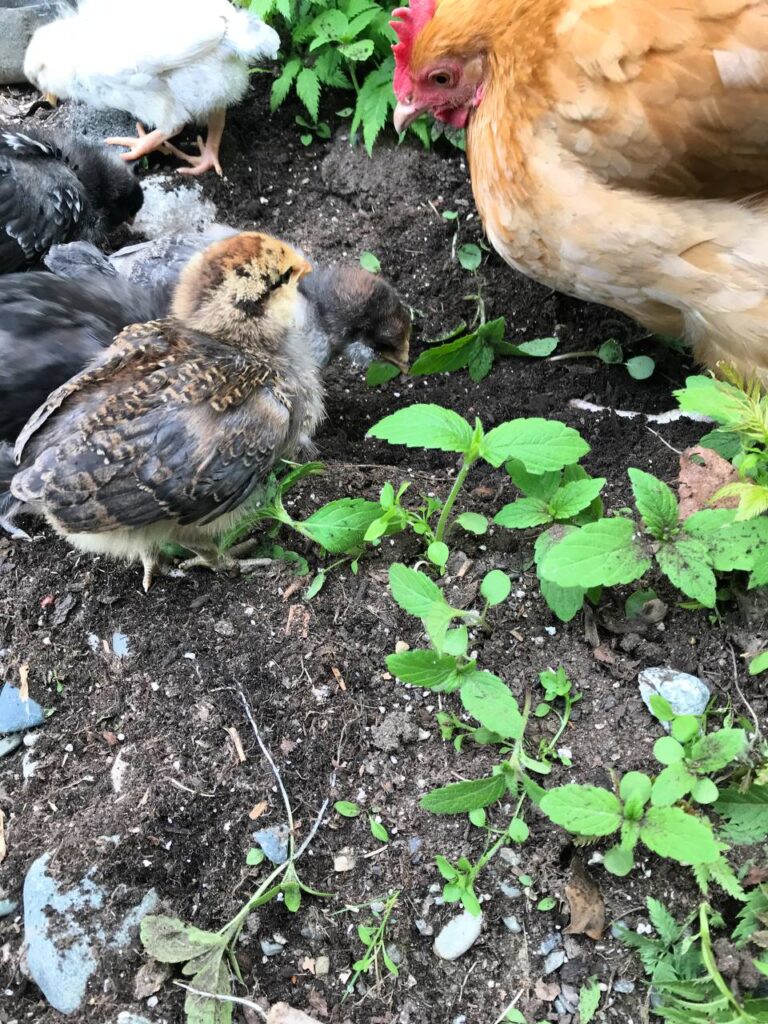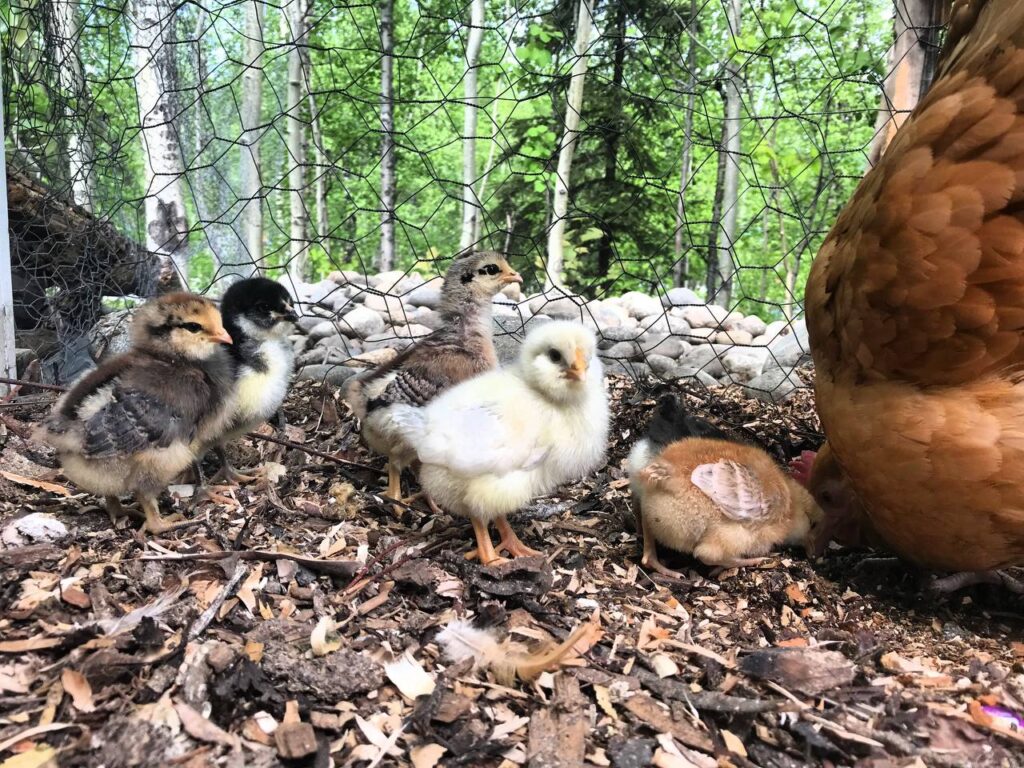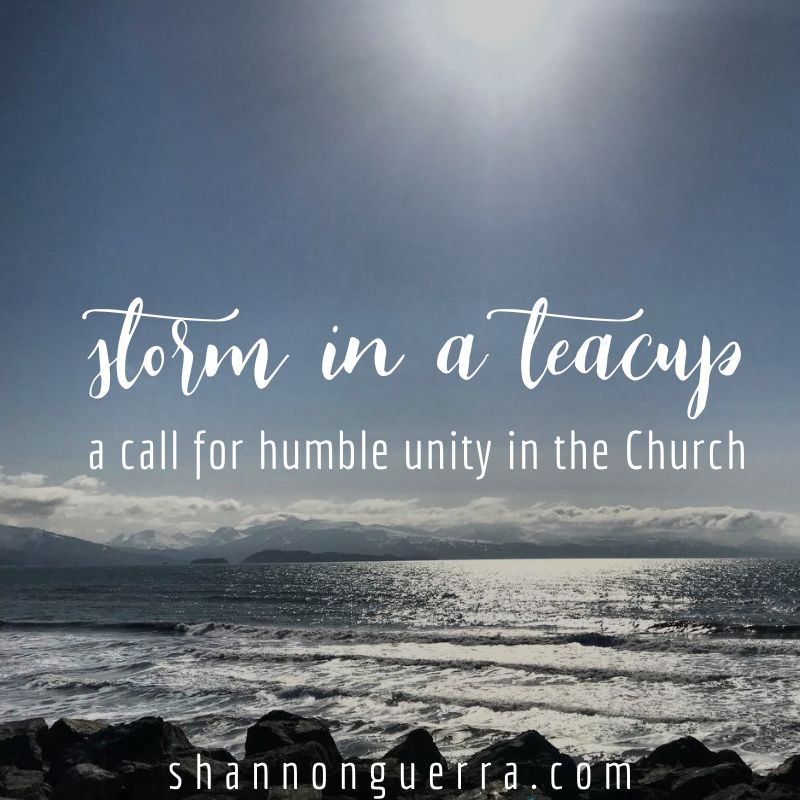Life has leveled up to a new level of ridiculous. I don’t mean the current events – I mean, they are, but we can talk about that later. What I mean is, there’s a rooster living in our bathroom.
I introduced you to Freckles in the last post. And yes, even inside, he still crows in the morning. Not the first day; he was too injured and didn’t eat or drink for about 36 hours. But the second morning I woke up to crowing at 7:14, approximately twelve feet from my head. The next day it was even earlier, 7:03.
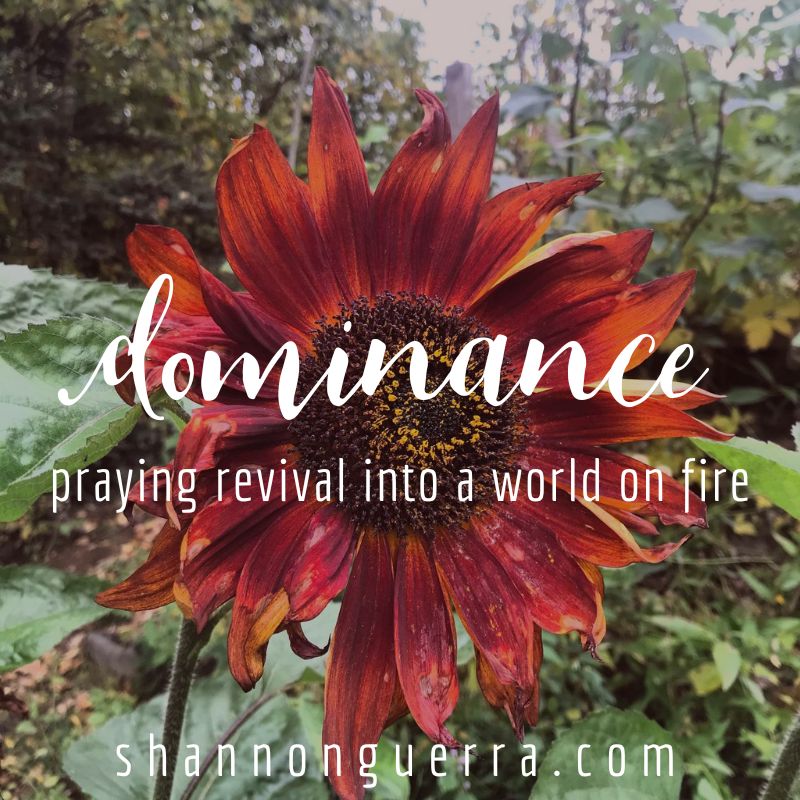
Knightley meowed from the corner of my pillow, and Vin murmured, “Cats to the left of me, roosters to the north…here I am, stuck in the middle with you.”
But this morning was better: Freckles, now acclimated to the late schedule of homeschoolers, waited until after 10am to start crowing. I told you, he’s marvelous.
(Wait, did I mention we also have five quail who’ve been brooding in the same bathroom for six weeks? They need to transition outside but currently their brooder won’t fit through the door because there’s a cage the size of a Prius blocking it from opening all the way.)
So some things have to change. Since we had too many roosters with all the chicks that hatched this summer, we sent two of the lesser-favored ones to (ahem) freezer camp, and in the reshuffling of space and territory, the other young rooster took it upon himself to prove dominance. Freckles got the worst of it; I found him hiding in a nesting box with one eye swollen shut.
And then – because Vin and I clearly still don’t know what we’re doing – instead of removing him that night like we should have done, we handpicked who he should roost with and put him in the coop with the gentlest hens…so we thought. The next morning both of his eyes were swollen shut and his ear was also terribly swollen, because one of them had picked on him overnight.
It’s what chickens do. If someone’s injured, they attack. It’s not exactly Kingdom culture.
That was Saturday, when everything else all over the world escalated. He’s been in our bathroom ever since to recover in safety, with occasional trips the first couple days to the living room for spa treatment (meaning, Vin held him while I swabbed his swollen eyelids with a steamy washcloth and talked to him about his nice complexion) and afternoon excursions during the last couple days to play with the kids in the yard or help the guys change tires because we got our first snow this week.
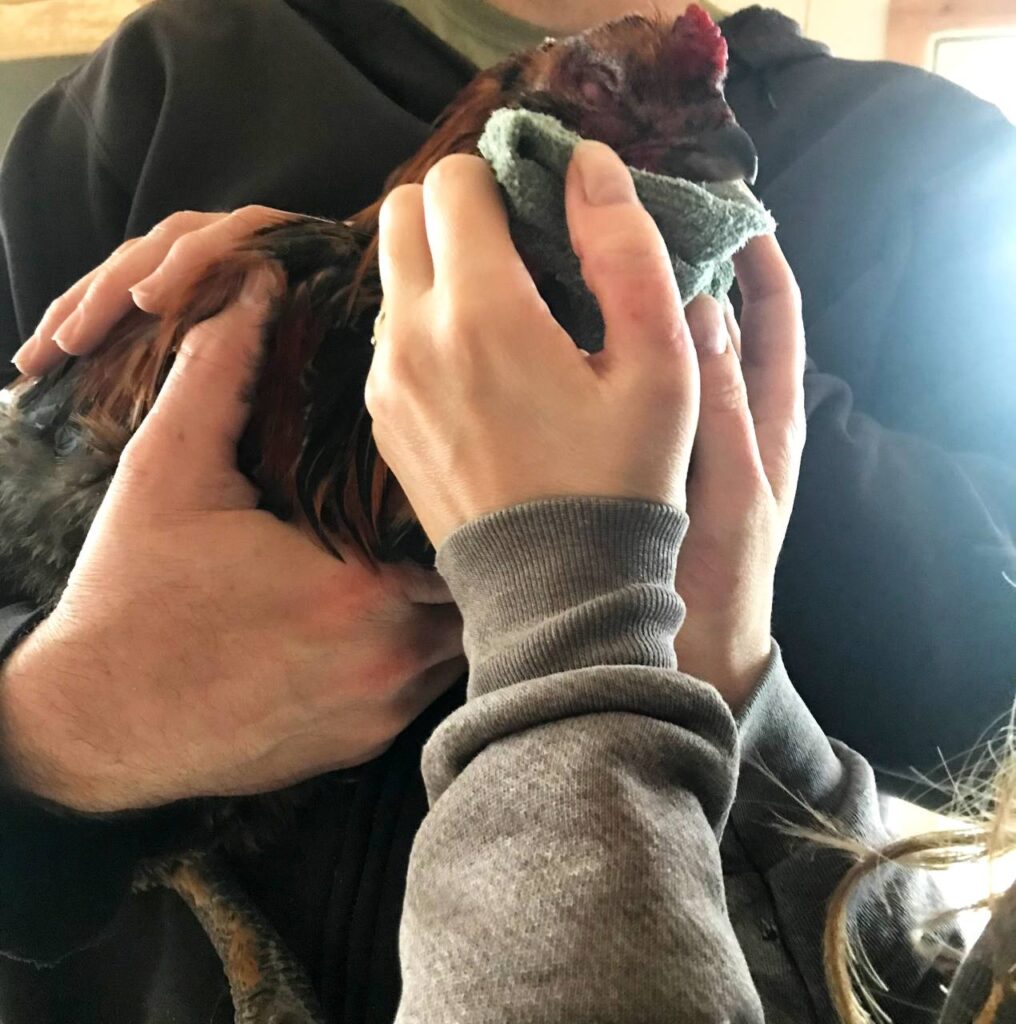
Our beautiful fall quickly turned to bleak-fall-mixed-with-winter, and we need to figure out what to do about roosters, and quail, and garden pots that need put away. I cannot resolve world events but I can tackle these. So while world leaders strut about a war they helped create to line their own pockets as others pay the ultimate price, I’ve been distracted with the small events in my own territory, watching Freckles make progress as his eyes start to see again.
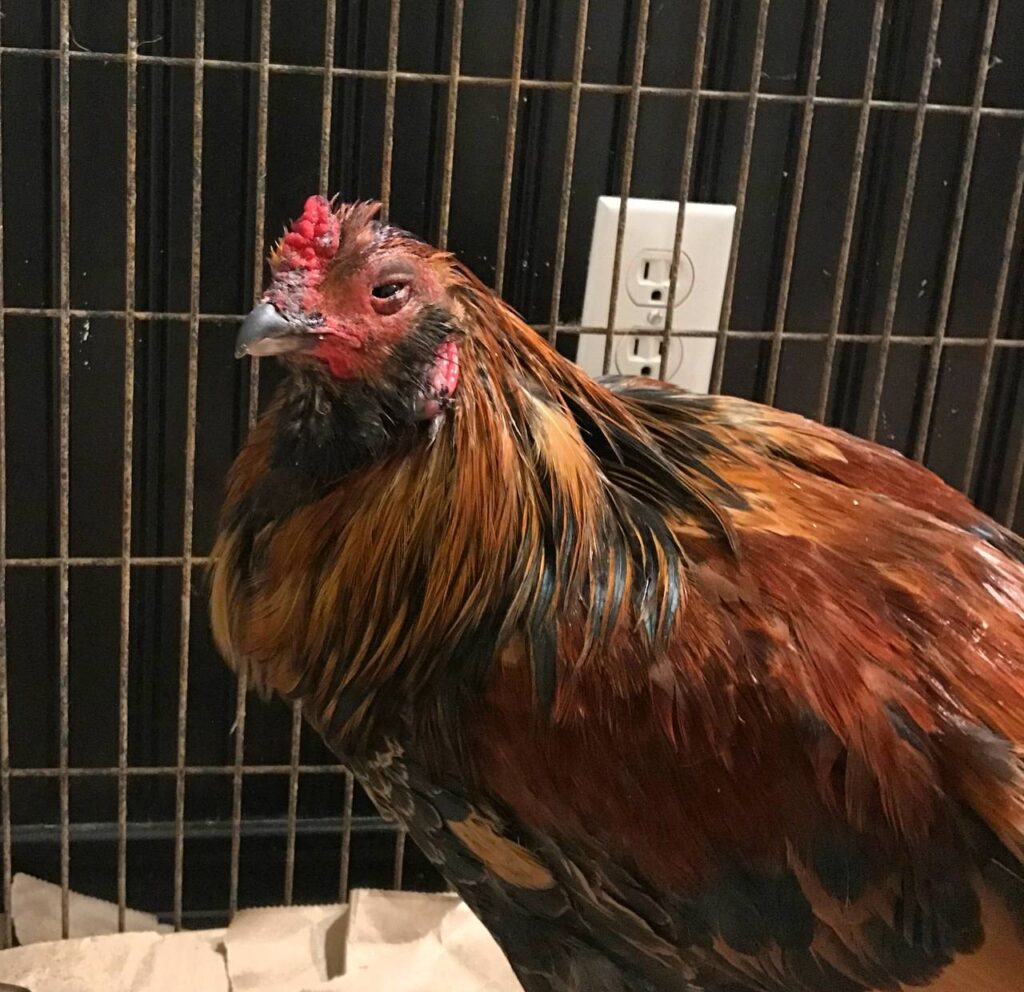
Is it enough, though? It’s such a small thing in light of so many unknowns and concerns about the future. We can pray deep and wide, but physically I can only reach so far.
And I thought about not sharing any of this at all because people on the internet can be stupid. (Not you, of course. Other people.) Why do you have more than one rooster? You should just get rid of the one who lost the fight. You should do this and this and this…People who don’t bother asking about the size of our flock or other dynamics are happy to throw out all kinds of unhelpful advice and criticism so they can feel like experts. But I’m not here for advice or criticism; I’m just here learning and trying to do the right thing, like most of the rest of us.
(For the record, we have too many hens for one rooster, and I don’t want to eliminate the one who’s nicest to the hens and our family. DUH.)
In the middle of the world threatening to light itself on fire, there’s something visceral and focused about trying to bring healing to one creature, and about not just letting nature take its course but instead being an intentional steward, partnering with God to bring restoration.
Sometimes I am the creature who needs healing, and if I can get the log out of my own eye it makes a huge difference on a wider scale. This right here, where I can touch, is where I do the most important work. When the world is ridiculous, this is where I show it who’s boss: He is, of course.
Good and upright is the Lord; therefore he instructs sinners in the way.
He leads the humble in what is right, and teaches the humble his way.
– Psalm 25:8-9
So I harvested carrots, and pulled ripe tomatoes from the vines growing in the living room, and spent more time listening – really listening – to my kids than I was inclined to after bedtime. I cleaned the gross area under the sink and prayed for other gross areas to be cleaned from our country.
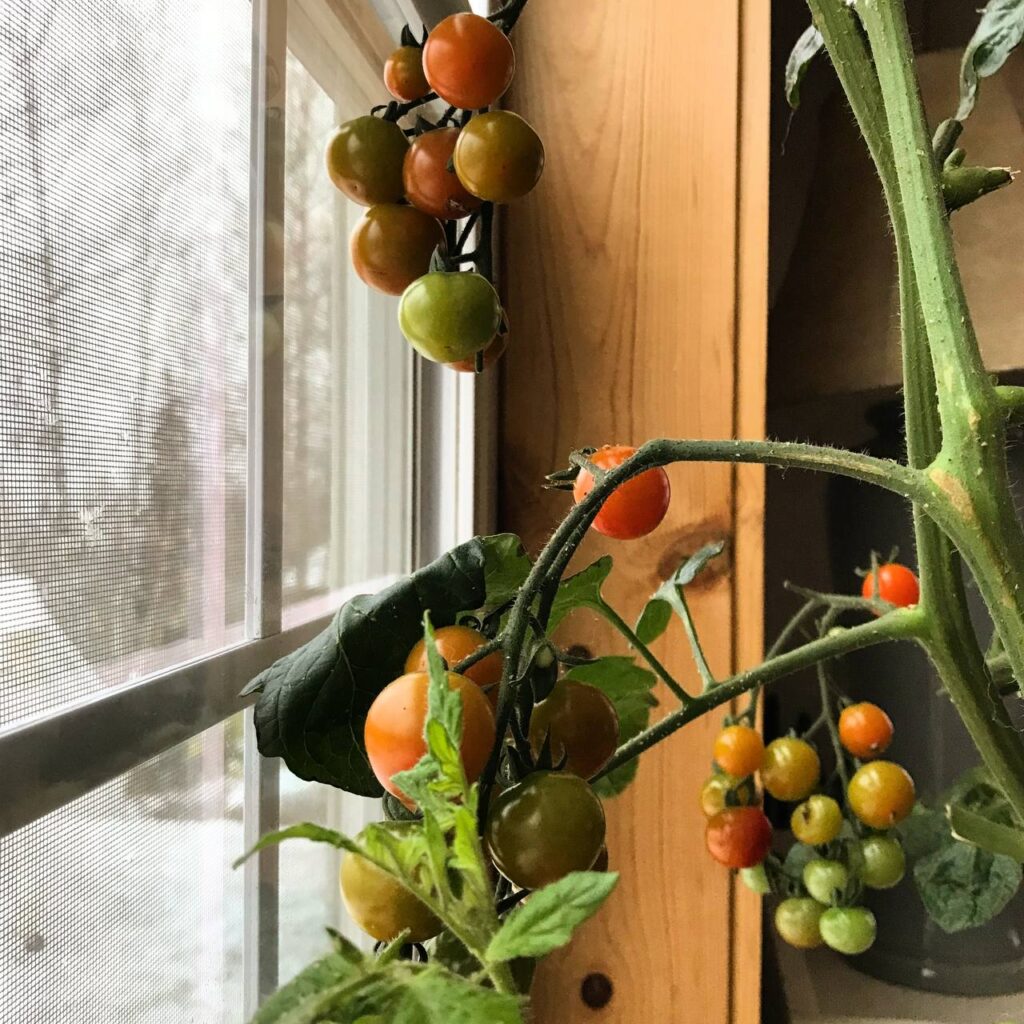
I read to my kids, and prayed with a stranger at the thrift store, and smiled at people who looked like they were in a hurry, because I’d rather be at home instead of running errands, too.
Trust in the Lord, and do good; dwell in the land and befriend faithfulness.
– Psalm 37:3
Such tiny things. But I want people to be unable to drive through Wasilla without being touched by the Lord and encountering bold love from His people. This is my territory, the land He’s made me (and many others) steward of. This is the place I can touch and cultivate. This is where we release Kingdom culture, ignite revival, and prove Who is dominant.
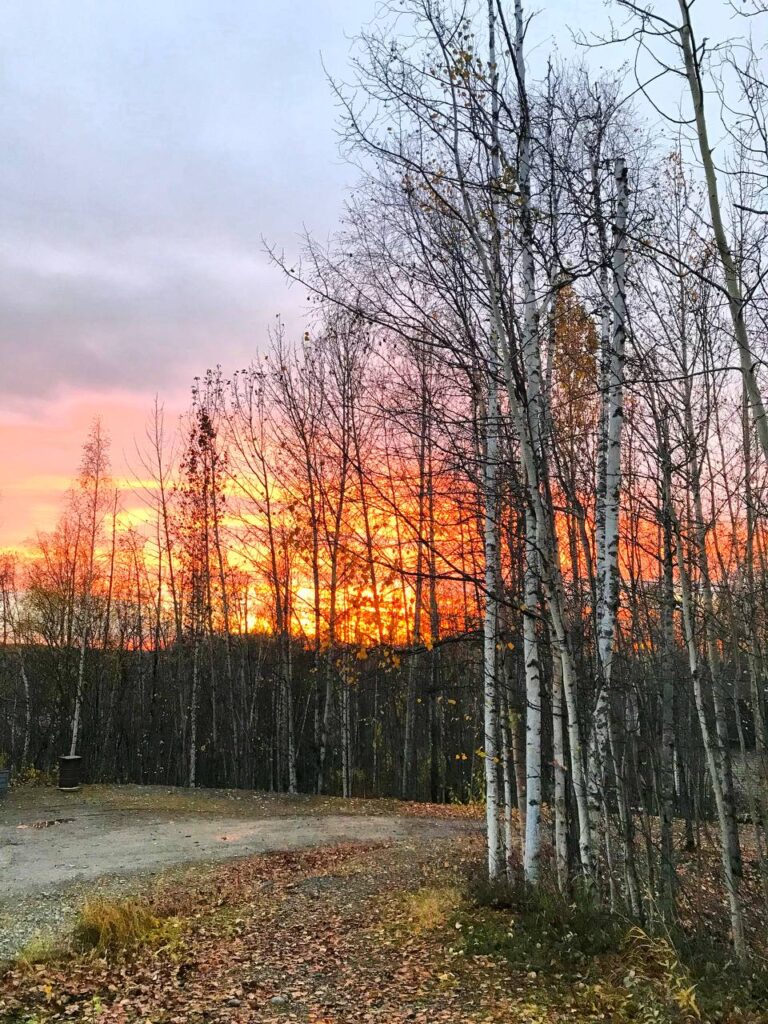
This morning we were praying about how creation groans, and how creation sings God’s praises, and how creation bears witness to God. We listened to the same song I sang when I found out I was unexpectedly pregnant with Kavanagh, struck with the glory of sober obedience: If creation still obeys You, so will I.
The earth is the Lord’s and the fullness thereof, the world and those who dwell therein.
– Psalm 24:1
For his invisible attributes, namely, his eternal power and divine nature, have been clearly perceived, ever since the creation of the world, in the things that have been made. So they are without excuse.
– Romans 1:20
And as we prayed, I kept hearing the phrase, “Creation, obey Him!” The enemy is bent on destruction because chaos and ugliness don’t reflect the glory of God or draw people to Him. But beauty, order, and strength do.
So in the midst of chaos, when anything I can do feels so small in comparison to world events, I’m pursuing order and beauty and strength in the areas I can reach. Because things here have to change.
I cannot counsel world leaders who beat war drums, but I can finish the tasks on my own desk. I can ask God to heal the wounded while I tend my rooster. I cannot prepare for all the unknowns, but I can pray for people to encounter God in dreams and visions as I bring order to my own house. I cannot root out evil networks, but I can ask God to invade hardened hearts as I wipe the counters and run another load of laundry and pray for those driving up and down the highway.
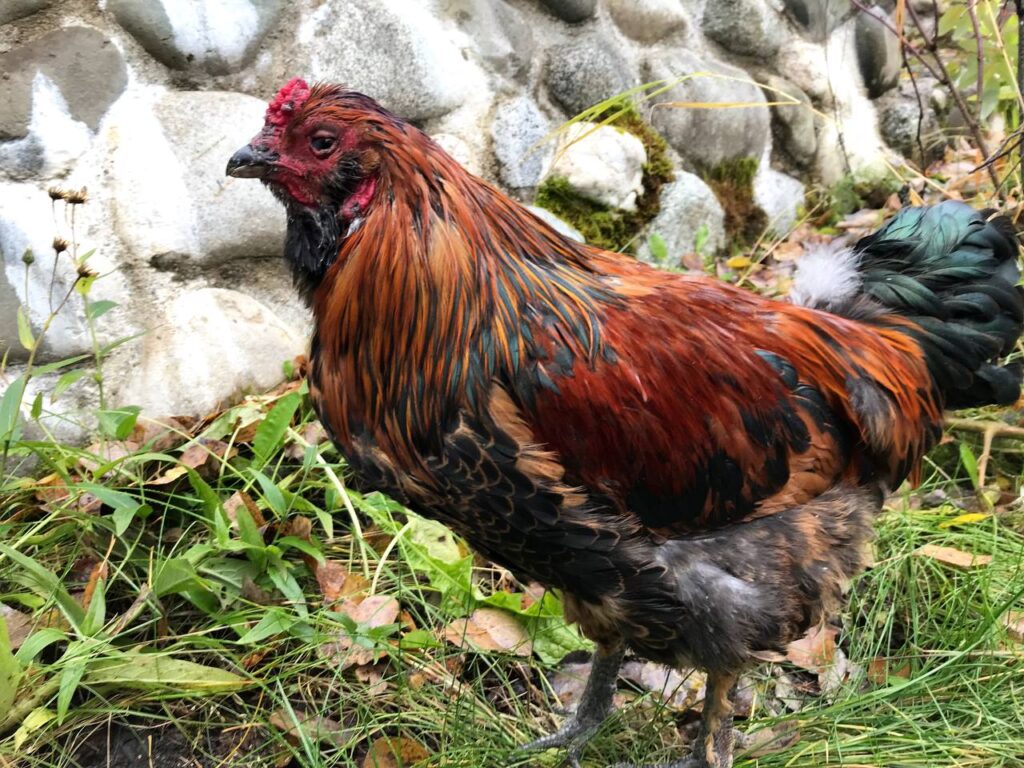
People are trying to light the world on fire, but what if the fire they get is revival, instead?
The globalists and the terrorists – but I repeat myself – think they dominate but they haven’t seen real power yet. They have no idea what comes of the prayers of those who have favor with the King who turns evil on its head: Communities saved. Culture redeemed. Workers of evil brought into the Kingdom of light.
What if we prayed that way, and the Lord confronted the perpetrators with the blinding light of a Damascus road experience? Because He does.
What if we prayed for those who are fleeing and despairing, and Jesus showed them He is the God who sees? Because He is.
The Lord is not slow to fulfill his promise as some count slowness, but is patient toward you, not wishing that any should perish, but that all should reach repentance.
— 2 Peter 3:9
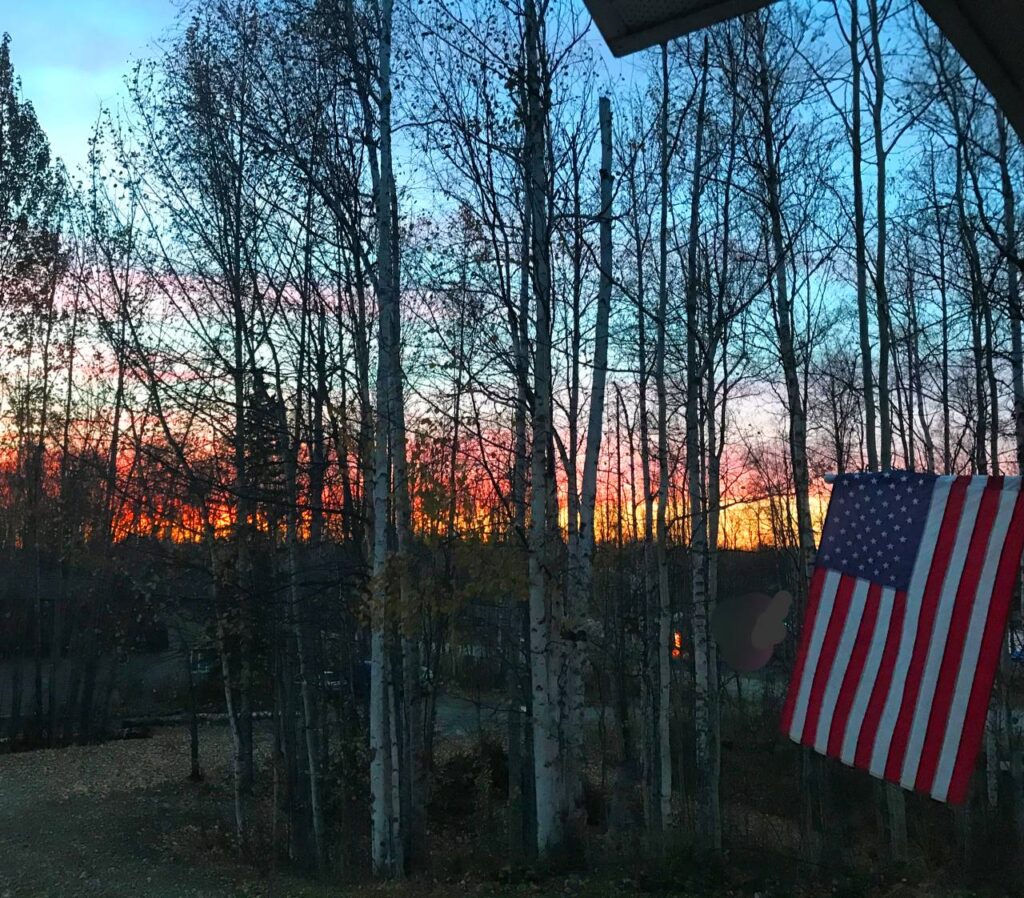
For the evildoers shall be cut off, but those who wait for the Lord shall inherit the land. In just a little while, the wicked will be no more; though you look carefully at his place, he will not be there. But the meek shall inherit the land and delight themselves in abundant peace.
– Psalm 37:9-11
It’s another season of sober obedience; our hearts might get hurt in this. But that’s the case in parenting, forgiving, writing, reaching out to others, being a friend, or trying to learn anything new. We might get hurt. None of this is safe or guaranteed.
But letting nature take its course and resigning to not doing anything is an insult to the One who gave everything, even when He knew it would hurt. He hasn’t called us to bury our talents and do the safe or easy thing. He’s called us to level up, even if it looks ridiculous.
He hasn’t called us to act like chickens, but to be saints, a royal priesthood.
But you are a chosen race, a royal priesthood, a holy nation, a people for his own possession, that you may proclaim the excellencies of him who called you out of darkness into his marvelous light.
— 1 Peter 2:9
It might bring the eucatastrophe we didn’t know we could hope for. We can pray for revival in the face of all the threats and posturing, and watch a quiet uprising that lights the world with a different kind of fire – the kind that burns but does not consume.
We pray rockets of revival and repentance into hearts everywhere, starting with our own. And the whole world will be changed, and we never saw it coming.
Want more posts like this, right to your inbox? Subscribe here.
P.S. Links for you!
- How do we walk in God’s presence, and rest in God, and also be His resting place? What is He calling us to be, and how do we succeed? This is a life-changing teaching from Hayley Braun; her message starts around 1 hour 55 minute mark.
- Incredible podcast here on hearing God, imagining with Him, and spiritually occupying the land the Lord has put before us, with Lana Vawser and Courtney Kueck.
- Did you see my guest post at Raising Arrows? It’s on post-adoption depression which I absolutely did NOT want to write about, especially after writing a whole book on it…but we can do hard things. So I did. It’s a super vulnerable post and I hope it blesses you.
- We just started A Tale of Two Cities by Charles Dickens this week in Gaining Ground. I’d love to have you join us! Don’t be intimidated by Dickens; he’s wonderful and we’re tackling just 35-40 pages a week.
- Homeschoolers! Looking for a way to make science fun? Vin initiated Science Friday with our kids a few years ago and has been sharing the links online for a while, but he just moved it to its own Substack where you can find all the links every week, for free, all in one place. It’s super cool – tell your friends, but maybe not your insurance agency.
- How divided is America — and why does it matter, and what can we do about it? Great post here from Mr. Guerra.
- Want to make kombucha? Here’s a great article on it that will help you get started.
- Memorizing scripture is powerful! Here’s a tip that might make it easier.
- Interested in alternatives to traditional cancer treatment? Here’s an amazing testimony. And if you’re looking for a book on that topic, I just finished World Without Cancer by G. Edward Griffin this month and highly recommend it.

